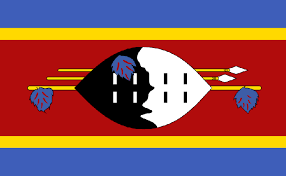Language/Swati/Vocabulary/Days-of-the-Week
Hi Swati learners! 😊
In this lesson, we will learn how to say the days of the week in Swati. We will also explore cultural information and interesting facts related to these days. To improve your Swati Vocabulary, you can also use the Polyglot Club website. Find native speakers and ask them any questions! Don't forget to keep practicing! 💪
Introduction[edit | edit source]
The Swati language, also known as Swazi, is a Bantu language spoken in Eswatini (formerly Swaziland) and South Africa. It is one of the official languages of Eswatini and is also spoken by some people in Mozambique. Swati is closely related to, and mutually intelligible with, the Zulu language, which is spoken in South Africa.
Swati has simple grammar rules and is known for its use of click sounds, which are made by clicking the tongue against the teeth or roof of the mouth. It is also known for its use of various prefixes and suffixes to indicate the tense or aspect of a verb, and to indicate the subject or object of a sentence.
Learning the days of the week in Swati is a good way to improve your vocabulary and practice sentence construction. In this lesson, we will learn how to say the days of the week in Swati, and we will also explore cultural information related to these days.
Don't miss the chance to check out these pages as you wrap up this lesson:Fruits, Say Hello and Greetings in Swati, Feelings and Emotions & Count to 10.
Days of the Week[edit | edit source]
The days of the week in Swati are very similar to the days of the week in English. Here are the Swati names for each day of the week:
| Swati | Pronunciation | English |
|---|---|---|
| Sonto | /soɲtɔ/ | Sunday |
| Msombuluko | /msɔmbəluːkɔ/ | Monday |
| Lwesibili | /lwɛsibɪlɪ/ | Tuesday |
| Lwesithathu | /lwɛsithaθu/ | Wednesday |
| Lwesine | /lwɛsinɛ/ | Thursday |
| Lwesihlanu | /lwɛsihlɑːnu/ | Friday |
| Mgqibelo | /mɡibɛlɔ/ | Saturday |
The Swati names for Monday to Friday are based on numbers. * Msombuluko means "first day" and Lwesibili means "second day". Similarly, Lwesithathu means "third day", Lwesine means "fourth day", and Lwesihlanu means "fifth day".
"Swati speakers typically use the opening line 'Sikhona' which means 'We are still here' to reply when asked how they are on Monday mornings," says Nomadic Matt travel blog. "It is said that the opening line is a way of expressing gratitude for having survived the weekend."
Dialogue[edit | edit source]
To help you practice, here's a dialogue featuring the days of the week:
- Person 1: Ngisaphila kahle, wena? (How are you?)
- Person 2: Ngisaphila kahle, ngiyabonga. Uphi ngomhlakaMsombuluko? (I am fine, thank you. Where were you on Monday?)
- Person 1: Ngayofunda kahle eUnited States. Wena? (I was studying in the United States. And you?)
- Person 2: Ngilapha eSwazini ngihlangene nabo bakithi ngomhlakaLwesihlanu. (I was here in Swaziland, spending time with my family on Friday.)
Conclusion[edit | edit source]
Congratulations! You now know how to say the days of the week in Swati. Remember to practice saying them out loud and using them in sentences. Learning a new language isn't easy, but with practice and dedication, you can become fluent in Swati! To continue learning more Swati vocabulary, check out the Swati Vocabulary lessons on this website. 📚
➡ If you have any questions, please ask them in the comments section below.
➡ Feel free to edit this wiki page if you think it can be improved. 😎
Sources[edit | edit source]
Wikipedia
Ethnologue
Omniglot
Nomadic Matt
Congratulations on finishing this lesson! Explore these related pages to keep learning:Clothes, Health, Greetings & Education.
Other Lessons[edit | edit source]
Sources[edit | edit source]
- Help:Basic words in Swati (síNgísi) - Wikipedia
- Practice & Learn Siswati (Swati with audio)
- Siswati - Time and Days of the Week Flashcards | Quizlet

